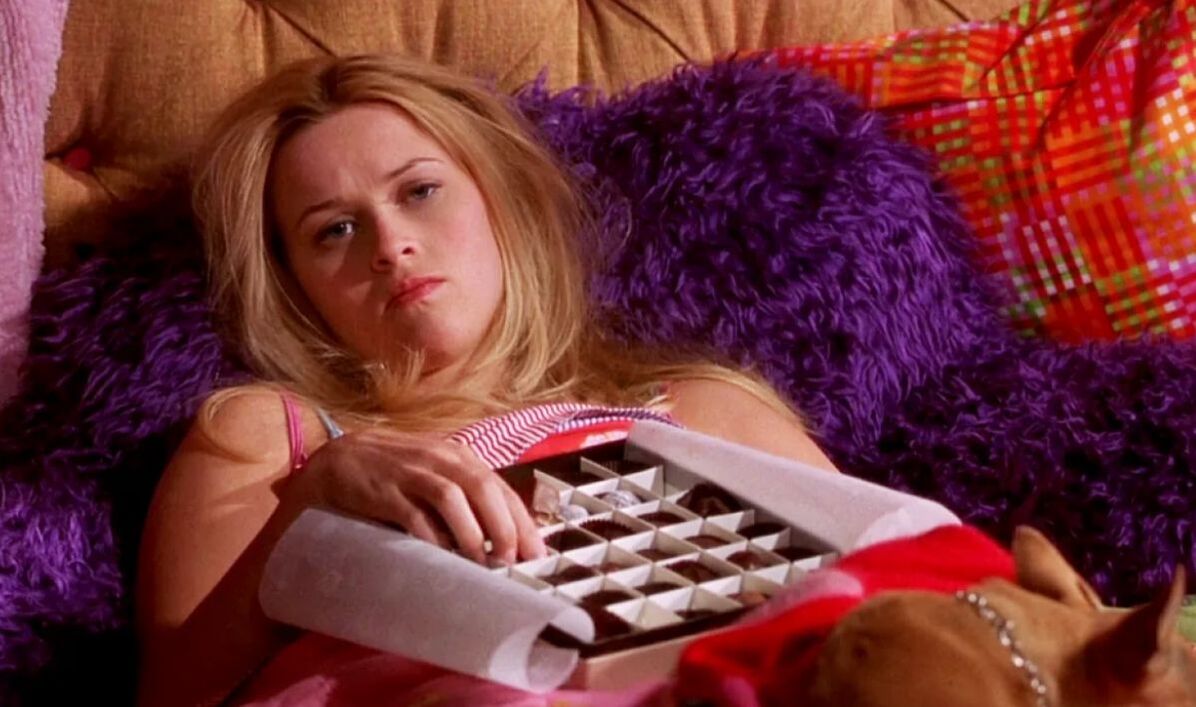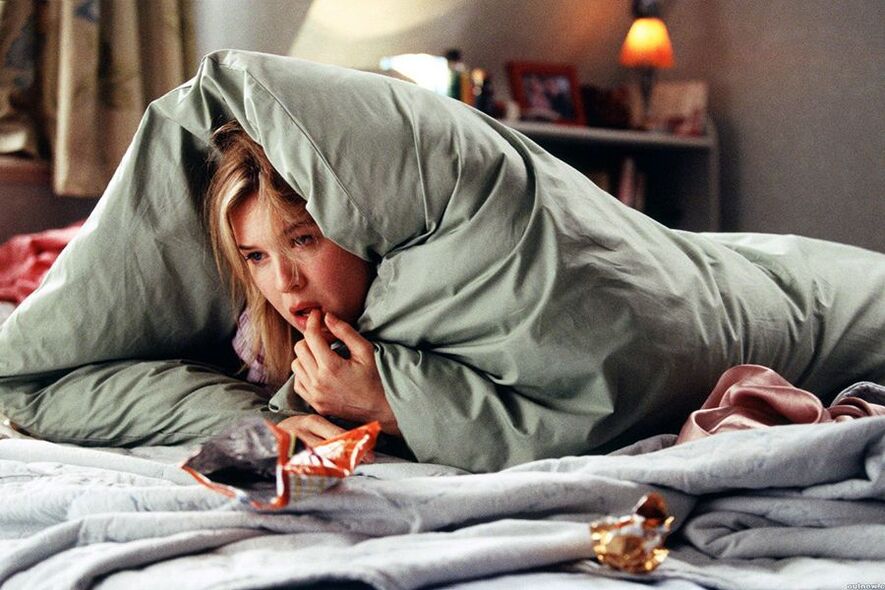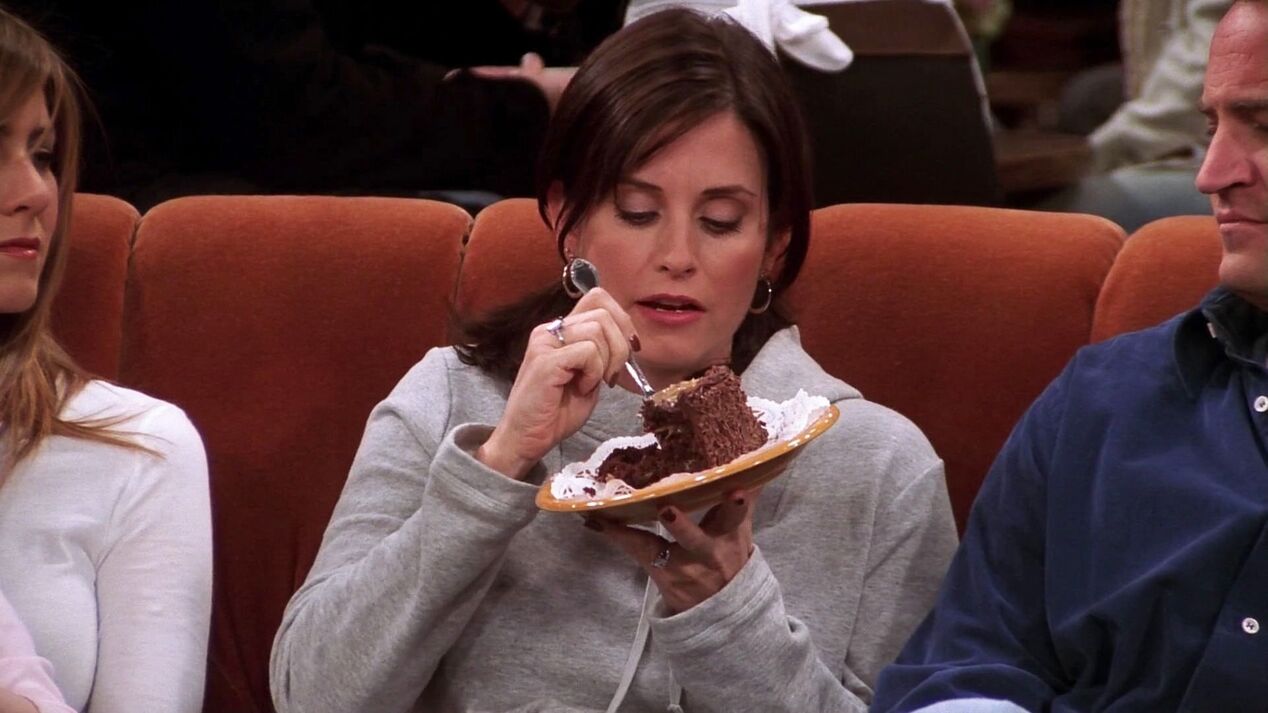
The title contains a common query in search engines. But this article won't offer advice like "count to 10 and drink a glass of water. " Let's talk about something else: why forcing yourself not to eat to lose weight is a bad idea and how to deal with it. your attitude to food.
What's wrong with not eating to lose weight?
Practicing psychologist: If you have a healthy nutritional attitude, you are in touch with your body - you hear its signals and know how to negotiate with it. If your body signals hunger, you satisfy it; full, you stop eating. The message "don't eat to lose weight" implies breaking this connection, confronting yourself, and manifesting auto-aggression. It turns out that in order to achieve the goal (weight loss), you are taking measures against yourself. This is not goodOdull and unhealthyOin.
Psycho doctor: Most people who have lost weight through restrictive diets regain their weight within 1-2 years. Moreover, 2/3 of them gain more than lose.
Hormone doctor:The message that forcing yourself not to eat to lose weight is absurd. It is important to understand: what happens to the body? Perhaps this is not a matter of improper diet, but rather a characteristic of hormones.
And what is it all about - a healthy attitude to food?
Psycho doctor: This is when regular meals and snacks are not accompanied by anxiety, shame, and guilt. Lack of "forbidden foods", dieting and calorie counting. And when you allow yourself to enjoy the food.
Hormone doctor:It is to consider food as a condition for a happy, fulfilling life. And there is no substitute for joy and pleasure.
Practicing psychologist: This is the time when you eat when you're hungry, when you're full, stop, don't focus on your body's shortcomings, but have to "fix" it with food or refuse it, when you're not too full, don't grasp emotions.
Can you give it more details? How and why do we corrode emotions?
Practicing psychologist: There are no good and bad emotions for the psyche, it can deal with any emotion. She doesn't need food, alcohol, utensils or a TV for this. But there are situations when a person drowns his emotions with food. Depressed, I ate a bowl of ice cream - things just got easier. His behavior receives positive reinforcement, and the person begins to use this strategy over and over again.
Counseling psychologist:Usually, people overeat because they lack rest. I will give you an example. A young woman raised a problem: she ate a lot at night and couldn't stand it. Turns out she works for her father, because she doesn't know how to say no to co-workers. No time to eat: business all the time. And in the evening she could not eat. That is, a person who is exhausted of himself, too worried about himself, is always in a state of stress. How to replenish lost energy? Burger, potatoes, chocolate.
It turns out that if a person eats when he is bored, anxious, angry, tired or sad, is that wrong?
Counseling psychologist:By its very nature, this is neither good nor bad: food is unconsciously associated with safety. For babies, food is not only food but also closeness to mother, calmness, confidence, acceptance, love, communication. Adults also sometimes eat to calm down. Too bad that's the only way to deal with anxiety or fear.
Psycho doctor: With food we satisfy different psychological needs. For example, having dinner with family is intimacy. Going to a restaurant with friends closes the need for social interaction. The problem arises when food becomes a crutch for our negative experiences. Which brings us to the topic of eating disorders (EIDs) or eating disorders. Psychiatry deals with these problems.
Wait a minute! It turns out that if I eat a chocolate bar after work and feel guilty - is this a disorder? Should I go straight to a psychiatrist?

Practicing psychologist:Complex problem. There are situations when a person eats chaotically, not paying attention to what he eats. Or he eats when he's not really hungry - because he's bored or because of company. It may just be an eating disorder that can be corrected with a dietitian. At the same time, however, eating out hungry is one of the symptoms of RIP. The line is very thin. And only a doctor can determine that. In our country, a psychiatrist is engaged in this.
Hormone doctor:It happens when a person is constantly sad, anxious, tired - and catches these problems. Perhaps this is the result of constant stress. But they are also symptoms of endogenous depression and anxiety disorders. A psychiatrist is also involved in diagnosing such conditions.
But not ERP - Anorexia and Anorexia? The symptoms are hard to confuse
Psycho doctor: It's not just bulimia and anorexia. Eating disorders also include psychological overeating (also known as paroxysmal or compulsive), eating inedible foods (Pick's disease), and psychogenic anorexia. These are disorders included in the International Classification of Diseases (ICD). However, there are disorders that do not make this list but also attract the attention of psychiatry: selective eating disorders, bulimia (when the desire for a healthy lifestyle goes beyond theall boundaries) and pregnancy (the strictest diet in pregnant women).
Practicing psychologist: Psychology also distinguishes Overeating Syndrome (BOE): when a person eats almost nothing all day, can't sleep for a long time, or wakes up frequently and has gone to the refrigerator when he wakes up. .
Obesity is also an ERP?
Psycho doctor: Not always. There can be many reasons - genetics, sedentary lifestyle and hormonal disturbances. RPP cannot be equated with obesity.
Practicing psychologist: Yes, I agree. There are people who have perfectly healthy eating behaviors but are obese. And it happens in the opposite direction - in patients with anorexia nervosa, for example.
Heard RPP's problem is mainly about women, teenagers and models? That's right?

Psycho doctor:Of course not. The disorder can develop at any age in both men and women. For example, selective eating disorders are most common in children - the child eats only certain foods.
Practicing psychologist: Anorexia and bulimia are more common in women. But forcing overeating - equality in men and women. So it cannot be said that RPP is a purely women's issue. And yes, teenagers, models, athletes participating in aesthetic sports (rhythmic gymnastics, figure skating, dance sports), TV presenters, bloggers, actress - all people whose vision and work depends on appearance are at risk of disease. But the problem can cross over with anyone, including those far from the modeling business or beauty blogging.
It is believed that any nutritional problem is an attempt to attract attention. Is this the truth?
Practicing psychologist: There is such an opinion, but it is not scientifically proven. Yes, during therapy, it is possible for RPP to start when the person is not accepted by their peers. For example, for a 13-15 year old girl, it was important for guys to see her and her friends for approval, so she went on a strict diet. It also happens that problems with food are children's attempts to get their parents' attention, often unconsciously. But these are quite special cases. It is a mistake to think that needing attention is the main cause of an eating disorder.
So what is the reason?
Practicing psychologist: There are three groups of causes: biological, psychological and social. Biology - for example, a genetic predisposition to RPC - can, unfortunately, be inherited. Psychological - domestic violence, prohibition of negative emotional expression, violation of the parent-child bond (for example, if the child is cold, distant from the parent). Society - the cult of ideals of beauty, fragility, bullying.
Psycho doctorA: There are certain personality traits that may contribute to the development of EID, such as perfectionism or lack of responsibility. The characteristics of eating behavior in the family, attitudes towards weight and body shape also influence. The child can be rewarded with candy for good conduct and study, and this is done: because I am good, you can take a candy. Very good? I will take ten.
Counseling psychologist:Many patients with ECD have experienced physical or sexual abuse. Also, for many people, food helps derive a side benefit from the situation. For example, one of my clients needed weight to protect herself from men. During therapy, we discovered that at school age the girl was in an uncomfortable situation with an adult man. The client is surprised that she remembers this: this story seems to be "forgotten", but continues to influence the girl's behavior as an adult. They also revealed the belief that men only love slim people. If so, the extra weight has helped her "unharmed", ie without a man.
How common are eating disorders in society?

Psycho doctor: It is believed that the prevalence of RPC in the world is around 9%. In the risk groups, the prevalence is higher. There are studies of adolescent girls that report that by age 20, about 13% have CRP symptoms. Anorexia is one of the deadly mental disorders, preceded only by chemical addiction.
Practicing psychologist: It's difficult to give exact numbers, as people with PAD often don't understand what they need help with. There are numbers for the United States, as it is a center for research and statistics on eating disorders: there are approximately 30 million people living with an eating disorder. There are twice as many women as men (20 million versus 10 million). And every hour in the world at least 1 person dies as a result of RPE.
What are the symptoms of RPE? Can I self-diagnose?
Psycho doctor: In general, the main symptoms are as follows:
- A person makes themselves vomit after eating or makes up for what they have eaten in other ways, for example overexertion (physical abuse), laxatives, and diuretics.
- Strong fixation on weight and shape (you can't add/subtract a single gram or centimeter! ).
- Multiple attempts to reduce weight and rotate body weight.
- A lot of rules in nutrition (I only eat protein, only vegetables, only red).
- Frequent thoughts, fears and feelings of guilt and shame related to food intake and body weight. When thoughts and behaviors related to food bring a lot of suffering.
- Loss of control over the amount eaten.
But many people can have such symptoms to varying degrees. Is there a more accurate diagnosis?
Hormone doctor:RPD is a chronic systemic disease. It causes metabolic changes in systems and organs, changes in human neuroregulation. This is a complex problem that can manifest itself in neuropathies, organic pathologies of the brain, organic lesions and depressive disorders.
But first you need to determine the cause of the symptoms. For example, if a person runs to the refrigerator at night, you need to find out the glycogen levels to rule out insulin resistance and type 2 diabetes.
What if you understand that you or a loved one has RPP?
Practicing psychologist: If you have - consult a psychiatrist for a diagnosis. If you suspect RPP in a loved one, it's even more difficult: they often refuse to admit that something is wrong with them. And unnecessary pressure can break trust. Let your loved one know that you are always on their side, ready to help and support.
Who treats ECD? Just a psychiatrist?
Psycho doctor: Is not. A psychiatrist diagnoses. And he cures, depending on the disease, a psychiatrist, psychotherapist, clinical psychologist (as prescribed by a psychotherapist). Why is it so important to see a psychologist in the first place? Because it can reveal comorbid conditions such as depression or anxiety disorders, which are found in about 80% of cases in people with RPD. Treatment depends on the severity of the disease. It can be drug therapy combined with psychotherapy (group, cognitive-behavioral, dialectical). Family therapy is also recommended.
Counseling psychologist:Anorexia and bulimia are treated primarily by psychiatrists. Emotional overeating - psychologist, consultant psychologist. Obesity - a nutritionist-endocrinologist (you need to check your hormones, see if your metabolism is disturbed) together with a psychologist or psychotherapist.














































































